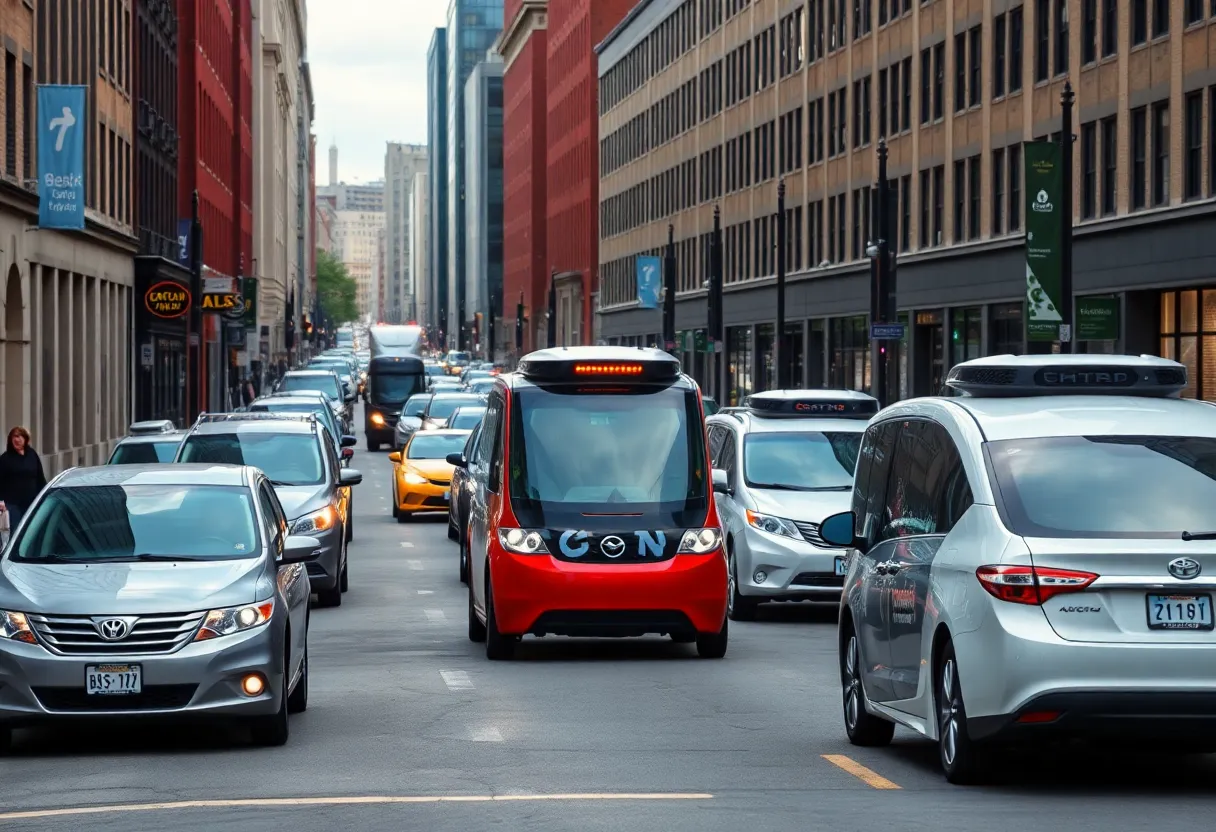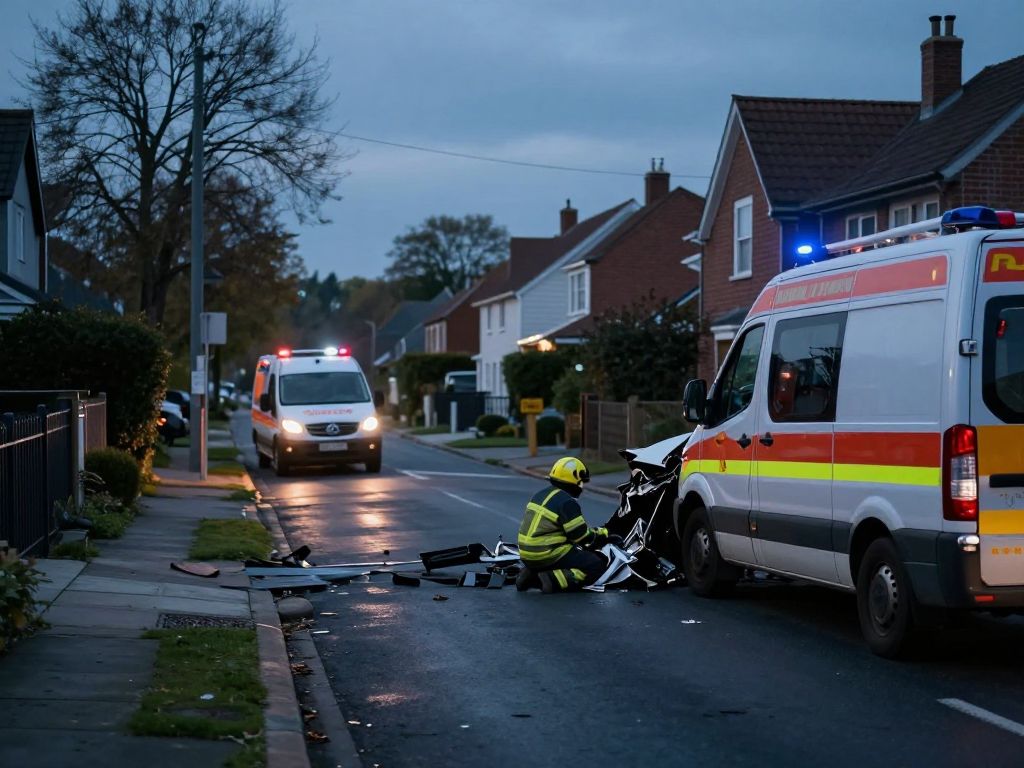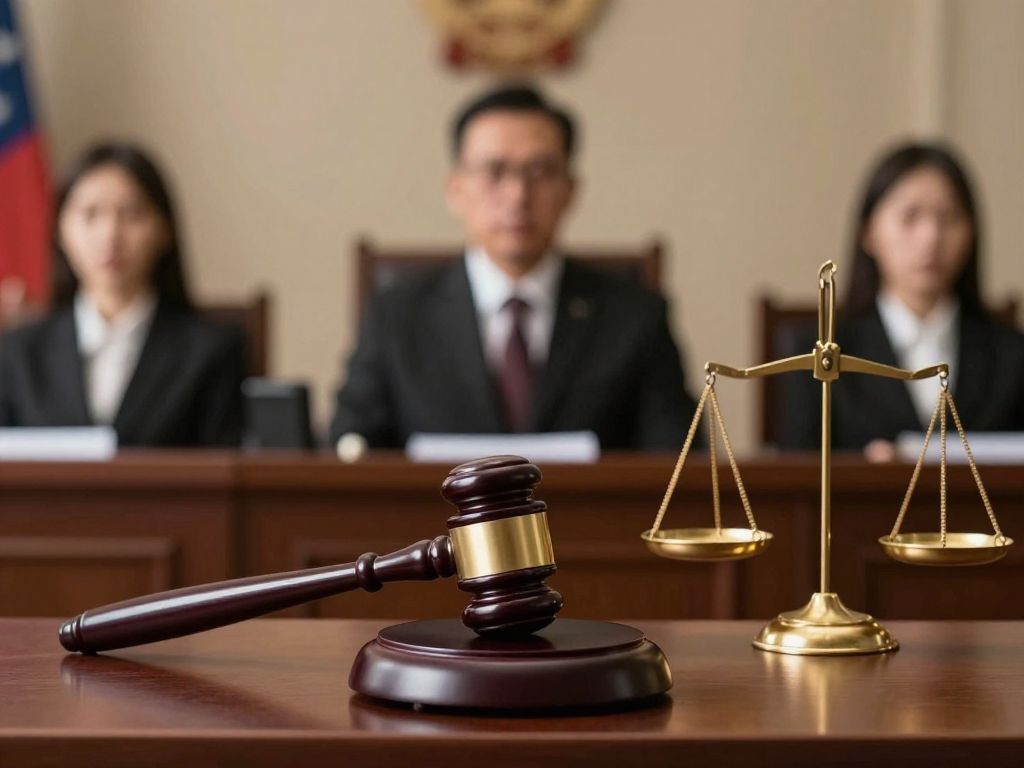News Summary
Boston is facing potential changes with the introduction of autonomous vehicles (AVs) as Waymo maps the area. Council members raised concerns over safety, traffic disruptions, and job security for local drivers, leading to an anti-AV rally. An ordinance for an advisory council has been introduced to assess the AV impact, focusing on job security, especially for immigrant drivers. Local officials stress the need for careful planning to balance technology advancements with public safety and local economies.
Boston is grappling with the potential introduction of autonomous vehicles (AVs) as Waymo, a subsidiary of Alphabet (Google’s parent company), has been mapping the streets of Greater Boston this year. The developments have raised alarms among local officials concerning safety, traffic disruptions, and job security for drivers in the area.
During a recent Boston City Council hearing, significant skepticism emerged regarding the deployment of AVs. Council members expressed concern over how the new technology could impact road safety, traffic management, and the livelihoods of local drivers. The session led to an anti-AV rally outside City Hall, where councilors joined union members in solidarity against the potential changes to the transportation landscape.
Waymo has indicated that it currently has no established timeline or plans for a commercial launch of AVs in Boston, emphasizing its commitment to initiating dialogues with local leaders and stakeholders. Despite this, the city council is advocating for changes to ensure that any future introduction of AVs considers the impacts on public safety, local businesses, and job retention.
In response, City Councilors Henry Santana and Erin Murphy have introduced an ordinance designed to create an advisory council. This council’s purpose will be to thoroughly assess the potential effects of AVs within the community, particularly regarding job security for vulnerable populations, including immigrant drivers who may be most affected by the shift towards automation.
The proposed ordinance signifies a proactive step from local legislators, aiming to address fears that AVs could replace human-operated vehicles, further complicating economic security for those reliant on driving jobs. Chief of Streets Jascha Franklin-Hodge highlighted the necessity of a cautious approach, noting that Boston’s distinct urban environment may present unique challenges to AV operation.
Franklin-Hodge underscored concerns about congestion, citing that only 40% of miles driven by Waymo in other locations are classified as “productive passenger miles.” Moreover, Boston’s intricate road system, with its narrow streets, heavy pedestrian traffic, and harsh winter conditions, could exacerbate difficulties with AV integration. Although Waymo is currently testing its vehicles under snowy conditions, there has been no verification of their performance in fully driverless scenarios during such weather.
Waymo representatives have responded to safety concerns by claiming their autonomous vehicles are involved in nearly five times fewer injury-causing collisions compared to their human counterparts. Nevertheless, local leaders remain cautious, particularly about how these vehicles might interact with emergency responders and navigate the complexity of Boston’s roads.
The App Drivers Union, representing approximately 70,000 drivers in Massachusetts, has also shown strong opposition to AVs. Union leaders have voiced fears that the introduction of AVs threatens their members’ livelihoods and could worsen economic insecurity for current drivers relying on ride-hailing services.
Frustration among city officials was palpable during the hearing, particularly regarding Waymo’s use of language such as referring to their technology as “the Waymo driver,” which many found unsettling. This highlights ongoing concerns related to the need for regulatory measures that balance technological advancement with the safeguarding of local jobs and the broader community’s needs.
As the conversation around AVs continues, other companies, including nuTonomy and Optimus Ride, have previously tested their autonomous vehicles in Boston, indicating a sustained interest in developing within the city’s market. Waymo’s strategy involves employing manual drivers to gather data in various cities, including Boston, prior to potentially rolling out an autonomous service.
The council’s call for careful planning and thorough studies before introducing AVs underscores a desire to ensure that public safety and local economic interests remain a priority as the future of transportation evolves.
Deeper Dive: News & Info About This Topic
HERE Resources
Protests Against Driverless Cars in Boston: Navigating a PR Storm
Tesla Delays Robotaxi Launch in Austin Amid Safety Concerns
Amazon to Launch Humanoid Park for Delivery Robot Testing
Waymo to Launch Self-Driving Robotaxis in Boston
Waymo Starts Mapping Boston for Self-Driving Taxis
Boston Faces Unseasonable Cold Due to Rare Nor’easter
Waymo Begins Mapping Boston for Autonomous Vehicle Operations
Waymo Begins Mapping Boston for Autonomous Ridesharing
Waymo Opens New Factory in Arizona for Autonomous Vehicle Production
Tesla’s Profit Plummets Amidst Musk’s DOGE Involvement
Additional Resources
- Boston.com
- Wikipedia: Autonomous car
- Boston.com
- Google Search: self driving cars boston
- MassLive
- Google Scholar: self driving cars
- GovTech
- Encyclopedia Britannica: Automobile

Author: STAFF HERE BOSTON WRITER
The BOSTON STAFF WRITER represents the experienced team at HEREBoston.com, your go-to source for actionable local news and information in Boston, Suffolk County, and beyond. Specializing in "news you can use," we cover essential topics like product reviews for personal and business needs, local business directories, politics, real estate trends, neighborhood insights, and state news affecting the area—with deep expertise drawn from years of dedicated reporting and strong community input, including local press releases and business updates. We deliver top reporting on high-value events such as Boston Marathon, Head of the Charles Regatta, and Boston Harborfest. Our coverage extends to key organizations like the Greater Boston Chamber of Commerce and Associated Industries of Massachusetts, plus leading businesses in finance, biotech, and insurance that power the local economy such as Fidelity Investments, Biogen, and Liberty Mutual Insurance. As part of the broader HERE network, we provide comprehensive, credible insights into Massachusetts's dynamic landscape.





